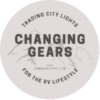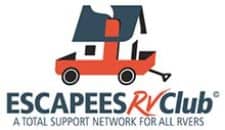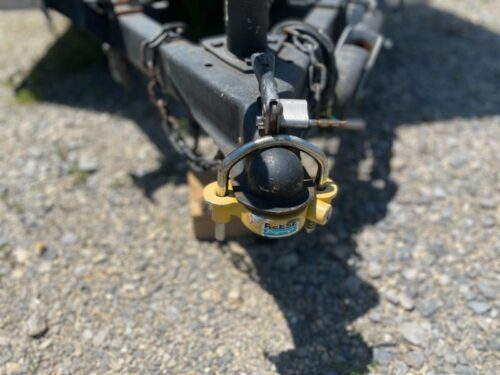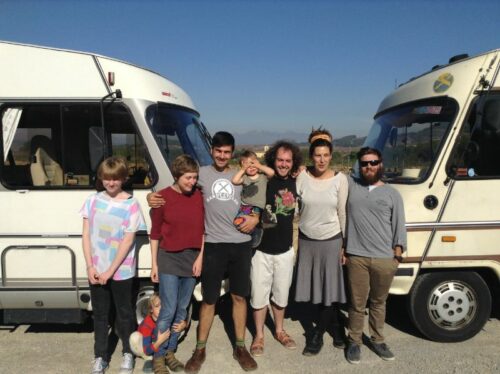Think of all the questions you’d ask a contractor before building a house. Now think of all the questions you’d ask a mechanic before buying a car.
Now squish those two lists together.
Here are eight important questions you should ask your custom RV builder beyond “How long will it take?” and “How much will it cost?”
1. HOW LONG HAVE YOU BEEN IN BUSINESS?
You don’t want to be someone’s first build. With the explosion of interest in RVs, many new custom builders have sprung up.
If they’ve been around awhile, they’ll have more experience and more clients you can speak to. (See #2 below.)

You should also ask your builder if they have ever had their own RV. Or spent a good bit of time in one, at least. There’s no better teacher than first-hand experience, and if they’ve had to deal with the problems and annoyances that crop up when traveling in a recreational vehicle, they’ll know how to avoid – or at least minimize – those same issues.
Knowing the “start date” of a business is only half the game, though. Here are some other questions to ask your custom builder to grok a better sense of th e
- How long have you been in your current production facilities?
- Are you still under original management?
- What’s the average tenure of your employees/designers?
- What’s your typical annual production volume? (e.g. 12 units, 50 units, 200 units?)
2. CAN I SPEAK TO SOME OF YOUR CLIENTS?
You researched RV builders online before making your list of candidates, right? Checked forums and online reviews? That’s good, but go further. Ask some of your builder’s past clients about their experience before, during, and after the build. If a builder won’t provide references, leave.

The best question to ask another client is: “If you had to do it again, knowing what you know now, would you go back to [builder]? Why or why not?”
Ask for references at least 2 years old. You want to talk to customers with RVs that have withstood the ravages of time.
3. WHAT PROFESSIONAL LICENSES/CERTIFICATIONS DO YOU HAVE?
Have you ever looked at those crazy “you had one job” or “fixed it!” posts online? Then you’ve seen the kinds of nightmarish contraptions people come up with. You don’t want that for your electrical system or plumbing.
Your builder should be certified by the RV Industry Association (RVIA). The RVIA is the professional association governing RV manufacturers, dealers, and suppliers. In addition to providing research and data about the industry overall, the RVIA also sets the building standards to ensure RVs are safe. As per their website:
“[The RVIA] maintains an inspection program that audits the compliance of RV manufacturers to plumbing, heating, fire and life safety, and electrical systems codes and provides an ongoing Federal Motor Vehicle Safety Standards education program for its members, as well as provides the only industry-backed training program for RV service technicians through the RV Technical Institute.”
Look for a label that looks something like this:

4. WHY DO YOU DO [X] THAT WAY?
As you’ve researched, you’ve seen that there are multiple ways of doing pretty much anything in a custom build (hence the “custom” part). You’ll probably have some ideas on specific items you want or particular installation details. If your builder insists on only using this method of insulating, that particular brand of tire, or those type of water heaters, find out why.

There’s probably nothing sneaky about what they’re doing – no matter what you do for a living, you’ll get into habits and find preferences – but as the saying goes “trust, but verify.”
- They may not know how to install an epoxy resin countertop, and that’s why they’re insisting on using laminates.
- By the same token, they might have tried a lot of different inverters and landed on the one they think is best, or know that based on your intended use, a three-way refrigerator is the better choice.
A good builder will be able to justify their use of any product or process.
5. WILL I BE PART OF EVERY STEP?
A good builder will make you a partner in the process, explaining options, consulting you on your preferences, alerting you to any issues, and just generally keeping you up to date on the progress of the build.

Now, a note from the builder’s side of the desk: Yes, be involved. Yes, ask questions. Yes, you deserve to get what you want or know the reasons why you can’t have it. That being said, please don’t call multiple times a day to check on how it’s going, or change the layout every week, or insist that your builder ignore important safety standards (see #3 above).
(If you’ve ever worked retail, food service, or some other public-facing job, you know the kind of customer I’m talking about. Don’t be them.)
“But the customer is always right,” I hear you say. Well… sort of. The full quote, actually, is “The customer is always right in matters of taste.”
If you want a fuchsia sink with brass handles and an orange countertop – an actual combination one of my design clients requested in the Before Times – you can get it (your builder doesn’t have to live with it, after all). What you can’t do is insist that the builder not install a gray or black water tank and just leave the pipe open to dump on the ground. Ew.
6. WILL YOU PROVIDE BUILD DOCUMENTATION/SCHEMATICS/BLUEPRINTS?
Building a custom RV requires a lot of creative thinking, and sometimes that creativity extends to plumbing systems, electrical wiring, and the like. You’ll want that documentation if there’s a problem on the road. Even if you don’t know how to read it, your repairman should be able to.

Having documentation is also important for warranty and insurance claims (see #8 below). If something isn’t working, or there’s a fire, or an accident, one of the first things that will be checked is if that piece was installed correctly.
Examples of documentation include:
- Itemized Features List
- Plumbing Schematics
- Wiring Schematics
- HVAC Schematics
- Blueprints and Elevation Drawings
7. HOW DOES [X] WORK?
In addition to getting the printed materials listed in #6 above, your builder should walk you through every system, every button, every panel, etc. If you don’t know how to read your inverter, dump the tanks, turn on the water pump, or locate the fuse panel, your trip is going to be short and miserable.

Suggestion: film or take pictures when the builder is going through each system so you have something to refer to. If you’re lucky, you may get an app or a link to a website that explains all of the important procedures. Failing that, you can always check YouTube or post your question in various online RV forums.
Your builder should also provide a documented PDI RV Inspection before you purchase your camper. The PDI Inspection will guarantee baseline quality for your unit.
8. WHAT’S YOUR WARRANTY/REPAIR POLICY?
Super, super important. You want to be assured that your RV builder stands behind their work and will correct any problems.
Be aware, many individual parts (refrigerator, engine, solar panels, etc.) may have warranties from their manufacturer, and some builders rely on that mish-mash of coverage rather than offer their own policy.

It’s important to note that many manufacturers require registering with them in order to receive the warranty, so fill out the cards, go to the website, or whatever else they need you to do before you hit the road.
Ask what their repair network requires. Mainstream RV brands usually have required dealership networks; custom builders will typically allow you to take your rig to any reputable service center.
9. WHAT QUESTIONS SHOULD I BE ASKING THAT I’M NOT?
This is actually a great question for any sort of important decision, not just custom RV builds. You’re going to someone that presumably knows more than you, and they will be aware of details you may have overlooked. In complicated processes, there’s always something that falls through the cracks.

You don’t know what you don’t know, you know?
If your builder has been in the business for a while, they should know what the important details are. Many will have design questionnaires covering each stage of the build. You might even have one of the building team members walk you through each section.
10. CAN I TRY IT OUT FOR A NIGHT?
Word to the wise: Don’t pick up your camper and drive four hours home the first day. Reserve a local campsite close to your builder, and spend the weekend there. Live in your RV. Test and try everything.
Most campers need some sort of warranty work their first year. Your builder may have accidentally missed a screw or forgot to tighten a bolt. Or you may not understand how to operate an appliance. Do yourself a favor and camp overnight before you take your rig home. If problems do pop up, your builder will be close by!

* * *
Having a custom RV built is exciting. You can get the layout you want, the finishes you prefer, and the storage you need. It can be as simple or as complicated as you like.
Many people that get custom RVs go on to get others in the future, and they usually make changes – sometimes big, sometimes little – based on how they ended up using their vehicle. There’s no substitute for experience. Things you thought would be one way can be the complete opposite, and things that you worried and fretted over may never come to pass.
This is why you should ask your builder these questions. As a part of the industry, they are expected to have the knowledge to help steer you through the sometimes overwhelming choices you’ll be facing, and ensure that you get an RV that will provide the comforts and features you need for your travels.
Patrick has visited 11 countries and 35 of the 50 states. He has racked up thousands of miles in RVs of every class, including a hand-crafted Romani vardo. His retirement plan is a custom Class B and a generic cat, the primary goal being to pick up those last 15 states.
-
Patrick Colemanhttps://changingears.com/author/patrick-coleman/
-
Patrick Colemanhttps://changingears.com/author/patrick-coleman/
-
Patrick Colemanhttps://changingears.com/author/patrick-coleman/
-
Patrick Colemanhttps://changingears.com/author/patrick-coleman/









